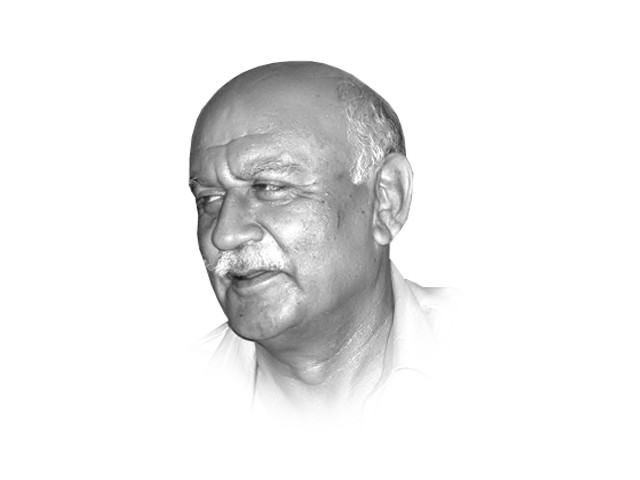Obama in India: what does the future hold?
What has gone relatively unnoticed in Pakistan is his promise to lift sanctions imposed on India for going nuclear.

Two weeks ago, he wrote an article with this very title, outlining what he thought Obama should offer to the Indians. While Obama has deviated from Ashley’s script considerably, he has offered them enough to make his visit a resounding success. Since his offerings made headlines, there is little point in listing them. It is, however, necessary to state the obvious: India is America’s hope to challenge the growing regional influence of China, a hope unlikely to be fulfilled; US foreign policy decisions are made not on the basis of wisdom, nor on the basis of what is in the better interest of whom, but on domestic compulsions!
Having received a drubbing in the recent congressional elections where his economic policies were castigated for not creating sufficient employment opportunities, he announced in New Delhi that “ today’s deal will lead to more than 50,00 job opportunities in the US — everything from hi-tech jobs in Southern California to manufacturing jobs in Ohio”. He was obviously addressing the domestic audience in the US!
What has gone relatively unnoticed in Pakistan is his promise to lift sanctions imposed on India for going nuclear. While expected, it re-emphasises the increasing differential in India-US and US-Pakistan relations (the juxtaposing of the US in the combinations is deliberate). Pakistan might continue to receive military and non-military assistance from the US, but this will be provided under temporary and revocable ‘amendments’, not through a permanent lifting of sanctions.
Our relationship is not only transient, but uncertain, even while it lasts: a permanent ‘carrot and stick’ or ‘good cop, bad cop’ approach.
A fact that is now obvious to almost everyone, except those who influence decision-making in the US, is that the US is staring defeat in the face in Afghanistan; Admiral Mike Mullen admitted as much before the congressional committee on defence last year, yet the Pentagon has succeeded in forcing Obama to renege on his announced schedule of withdrawal from Afghanistan. Of course, on each occasion that GHQ influences a policy decision, it has been held up for public viewing, but not when the Pentagon does so!
But where do these disparate dotted lines connect — India is a strategic partner, Pakistan is anything but (another fact everybody is aware of) and the US is losing in Afghanistan. Before the US finally pulled out of Vietnam, it bombed Cambodia into the ground to claim victory. Admittedly, Pakistan is not Cambodia, nor is it Afghanistan or Iraq, but it does not need a sage to figure out which country will be held responsible for the defeat of the all-powerful US military at the hands of the rag-tag Taliban military.
If this is as obvious as I think it is, why can’t our political leadership see the writing on the wall? Why is it that we are not witnessing a foreign policy that can give us hope for a future when the US turns hostile? Why does our venerable foreign minister have to pander to US demands and publicly denounce Iran’s nuclear programme?
Pakistan is a country with a ‘strategic’ location; but this is only because all the old ‘silk routes’ from Samarkand, Bokhara, and China to South Asia, Persia, Baghdad and the Middle East run through it. If we alienate our neighbours through whom we are linked, we have no hope of establishing the strategic commercial corridor that could guarantee us a future — with or without the US.
Published in The Express Tribune, November 9th, 2010.















COMMENTS
Comments are moderated and generally will be posted if they are on-topic and not abusive.
For more information, please see our Comments FAQ